Delving into the intricacies of natural African hair reveals a world as rich and diverse as the continent itself. It is a multi-faceted topic, encompassing biology, culture, fashion, and personal identity, each aspect as enlightening as the other. Recognizing the unique characteristics and growth patterns of African hair equips us with the necessary knowledge to appreciate and better care for this beautiful hair type. Together, we will navigate through the misconceptions, explore the various challenges faced by individuals with this hair type, and give practical advice to overcome these challenges. Furthermore, we will journey through the different African hairstyles, celebrating the mix of classic and modern trends, and possibly inspire you to try a new style. Finally, we will delve into the realm of hair care, showcasing a variety of products tailored for African hair along with some handy Do-It-Yourself ideas. Armed with this knowledge, we can ensure your hair’s vitality and beauty are preserved.
Understanding the Nature of African Hair
Characteristics of Natural African Hair
Natural African hair, also known as afro-textured or kinky hair, has a distinct structure that sets it apart from other hair types. Overwhelmingly, African hair strands are oval-shaped and have a spiral pattern, making the hair dense, spongy, and highly textured. The uniqueness of the structure creates natural volume and allows the hair to maintain styles that would be challenging for finer hair textures.
Unlike straight or wavy hair types, the natural twisted structure of African hair makes it more susceptible to damage and breakage. This is because the numerous twists and curls provide points of structural weakness where the hair can break.
Growth Patterns of African Hair
There is a myth that African hair doesn’t grow as fast or as long as other hair types, a misconception often due to the hair’s shrinkage factor and susceptibility to breakage. It’s important to note that African hair does grow at nearly the same rate as other hair types, typically about half an inch per month. However, due to its coil shape and tightly wound follicles, the length isn’t always immediately visible. The severe shrinkage experienced can make hair appear shorter than it actually is.
Moreover, African hair has a shorter anagen (growth) phase compared to other hair types. This means the overall time that the hair spends growing before it stops is relatively shorter, leading to an average maximum length that is often less than what is achieved by other hair types.
Versatility of African Hair
Without a doubt, one of the most amazing features of natural African hair is its versatility. The texture of the hair allows it to be styled in a number of diverse ways. From braids, twists, and locs to afros, buns, and knots, the options are myriad. Despite its perceived limitations, with the right care and styling methods, African hair can be a platform for great creativity and trend-setting hairstyles.
Special Care for African Hair
Due to its distinctive nature, African hair requires unique care to maintain its health and prevent breakage. Its coily structure makes it difficult for natural oils from the scalp to travel down the hair shaft, leading to dryness. As such, African hair needs regular moisturizing and conditioning.
Protective hairstyles that help to minimize tangling and manipulation can also help prevent breakage and retain length. Furthermore, recognizing the fragility of African hair, gentle handling is crucial. Vigorous combing and the use of harsh chemical hair products should be avoided.
Debunking Myths About African Hair
There exists a widespread misconception that African hair possesses unbeatable strength and durability due to its coarse, dense outlook. In contrast, it is surprisingly fragile and susceptible to damage, as a result of its natural twists and coils.
A further misguided notion is that African hair does not grow. Contrary to this belief, African hair grows at a comparable rate to other hair types, with shrinkage and frequent breakage often veiling this growth process.
The belief that natural African hair is complicated to manage is prevalent but misconstrued. With adequate understanding of its need for hydration and delicate care, managing natural African hair transforms from a challenging task to an empowering routine. Given the appropriate care, products, and styling methods, natural African hair is versatile, durable, and truly beautiful.
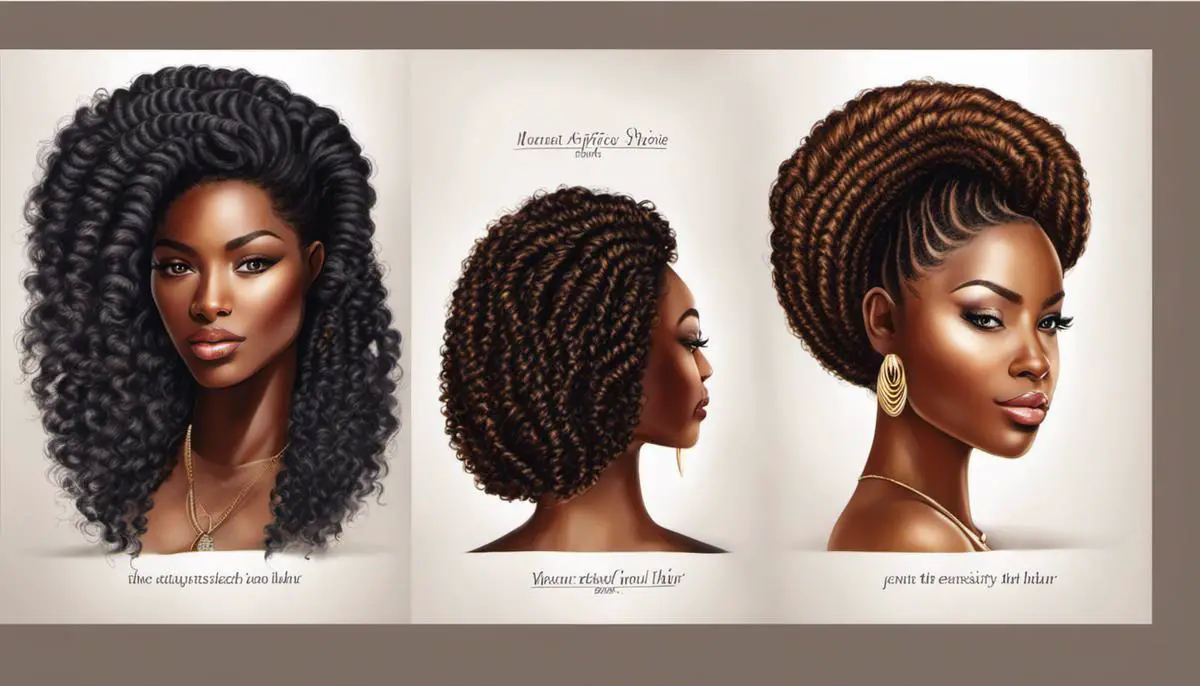
Challenges Faced by Individuals with Natural African Hair
The Unique Challenges of Managing Natural African Hair
Natural African hair, renowned for its curly or coiled texture, confronts distinct challenges ranging from societal perceptions to the effects of the environment. A fundamental challenge is the need for supportive and suitable hair care products that bolster the health, strength, and manageability of such hair. Additionally, societal attitudes and biases often pressure individuals with natural African hair, influencing their hair care decisions and self-image. Therefore, acknowledging these challenges and finding appropriate solutions forms a critical component of maintaining healthy hair and a positive self-perception.
Environmental Challenges
The environment in which one lives significantly impacts the health of natural African hair. Dry climates can result in brittle hair that is prone to breakage, while humid environments can lead to frizz and shrinkage. Additionally, changes in seasons and inconsistencies in weather can contribute to hair damage or slow growth rates. To mitigate these issues, hydration is crucial. Keeping the hair and scalp moisturized using natural oils, such as jojoba or coconut oil, can strengthen the hair and increase its resilience against adverse weather conditions.
Societal Challenges
Societal norms and perceptions play a significant role in influencing how individuals with natural African hair feel about their hair. Historically, societal standards deemed straight hair as ‘professional’ or ‘beautiful’, leading many individuals with Afro-textured hair to resort to chemically straightening their hair or donning wigs and weaves to conform to these often flawed expectations. Thus, embracing one’s natural hair can seem daunting due to historical prejudice and current societal pressures.
However, it’s essential to remember that each person’s hair is unique and beautiful, further advancing the natural hair movement that promotes self-love and acceptance. Forums, platforms, and communities championing the diversity of natural hair are continually growing and can provide a crucial support network.
Product Availability and Selection Issues
The availability of suitable hair care products plays a significant role in the effective maintenance of African hair. However, many off-the-shelf products contain harsh chemicals such as sulfates, parabens, and mineral oils that can damage Afro-textured hair. Additionally, finding products that cater specifically to this hair type can be challenging in some regions, leading to improper care or damage.
Fortunately, the rise of black-owned hair care brands and the mainstream focus towards catering for African hair types means that finding appropriate, natural, and safe products are becoming easier. It’s important to choose sulfate-free products that stress hydration and nourishment. Regular deep conditioning treatments, protein treatments, and hot oil treatments are also recommended.
Beneficial Tips for Natural African Hair
Top among recommended practices for supporting healthy natural African hair is cultivating an appropriate hair care routine that caters to your specific hair type and lifestyle. It’s crucial to regularly engage in deep conditioning, adopt protective styles, maintain hydration, and minimize hair manipulation to reduce breakage potential.
Ensuring your hair stays hydrated effectively combats dryness, while protective styles like braids and twists can shield your hair from physical damage. It’s also essential to maintain a balanced diet dense in proteins, vitamins, and minerals to foster optimal hair health. And, possessing a positive attitude towards your unique, natural hair, is key in facing any challenges head-on, encouraging self-love, and promoting healthier hair.
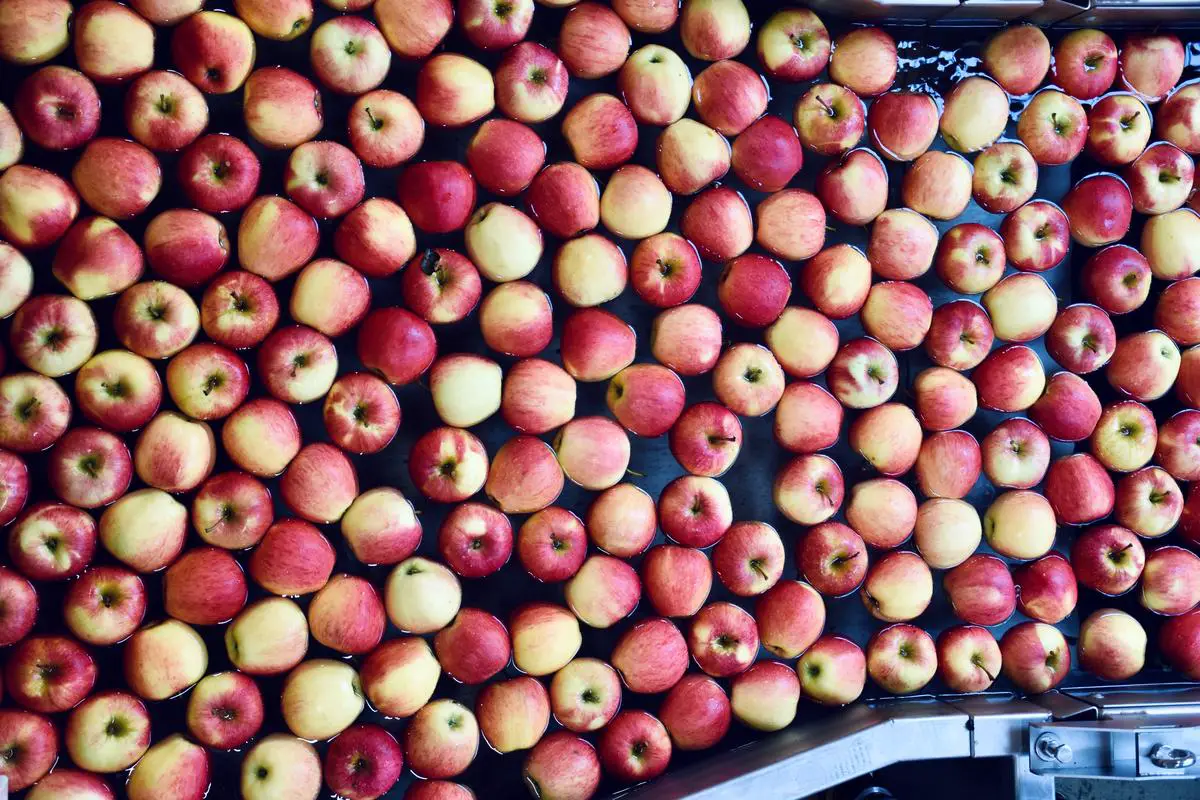
Photo by arnosenoner on Unsplash
How to Maintain and Care for Natural African Hair
The Importance of Keeping Natural African Hair Healthy
The characteristic texture and structure of African hair demand special care and techniques to maintain their health and liveliness. Renowned for its versatility, African hair needs the right measures to prevent breakage and other damage. The foundation for keeping natural African hair healthy lies in a steadfast and regular hair care regimen. Implementing regular hydration, conditioning, adopting protective hairstyles, as well as employing effective shampooing and detangling techniques play a crucial role in preserving the vitality and sheen of natural African hair.
Shampooing African Hair Correctly
Shampooing involves not only cleaning the scalp and hair but also maintaining the natural oils present. Overwashing can strip away these oils leading to dry and brittle hair. It’s usually recommended to shampoo once every 1-2 weeks for African hair. Using a sulfate-free shampoo can help avoid the rob of necessary moisture and create a balance in your scalp’s natural oil production.
The Role of Conditioning in African Hair Care
Conditioning is a critical component of any African hair care routine. Deep conditioning the hair every week helps restore its natural shine and keep it well moisturized. Conditioners containing ceramides, proteins, and natural oils are often recommended, as they help hydrate and strengthen the hair strands.
Detangling Techniques for African Hair
African hair is prone to tangles and knots due to its unique texture. Gentle detangling is essential to prevent breakage. It’s recommended to detangle during the conditioning process when the hair is wet and more elastic. Using a wide-tooth comb or your fingers works best to patiently work through the tangles and knots.
Moisturizing: A Vital Aspect of African Hair Care
African hair tends to be naturally dry and thus needs regular moisturizing to maintain health. Water-based moisturizers can hydrate without leaving a greasy feel. Layering with an oil or butter can help seal in this moisture. A consistent routine of moisturizing and sealing can keep the same soft, less brittle and prevent damage.
Protective Styling for African Hair
Protective styling shields the ends of the hair, which are the oldest and most fragile parts, from damage. Braids, twists, and updos are common protective styles. However, proper care should be taken even when the hair is in these styles. Over-tightening can lead to hair breakage or scalp damage while leaving these styles in for too long can cause matting or knots.
Importance of Regular and Consistent Hair Care
A regular and consistent hair care regimen is the key to maintaining natural African hair. It involves consistent shampooing, deep conditioning, effective detangling, regular moisturizing, and switching up protective styles. Adhering to a schedule can help ensure that your hair gets the necessary care on a consistent basis.
Understanding Your Hair Type and Needs
Understanding your unique hair type and its needs is also fundamental in maintaining healthy African hair. This includes the frequency of washing and conditioning, choice of hair products, and preferred protective styles. Being attuned to your hair’s needs and responses enables you to tweak your routine and optimize for healthier, stronger hair.
Overview
Maintaining the health and vibrancy of natural African hair demands a deep understanding of its specific needs and a consistent hair care routine. The key elements in this routine include shampooing, conditioning, detangling, moisturizing, and utilizing protective styling techniques. The implementation of these components, however, varies significantly from individual to individual. With a keen understanding and commitment, it is entirely possible to maintain and enjoy healthy African hair.
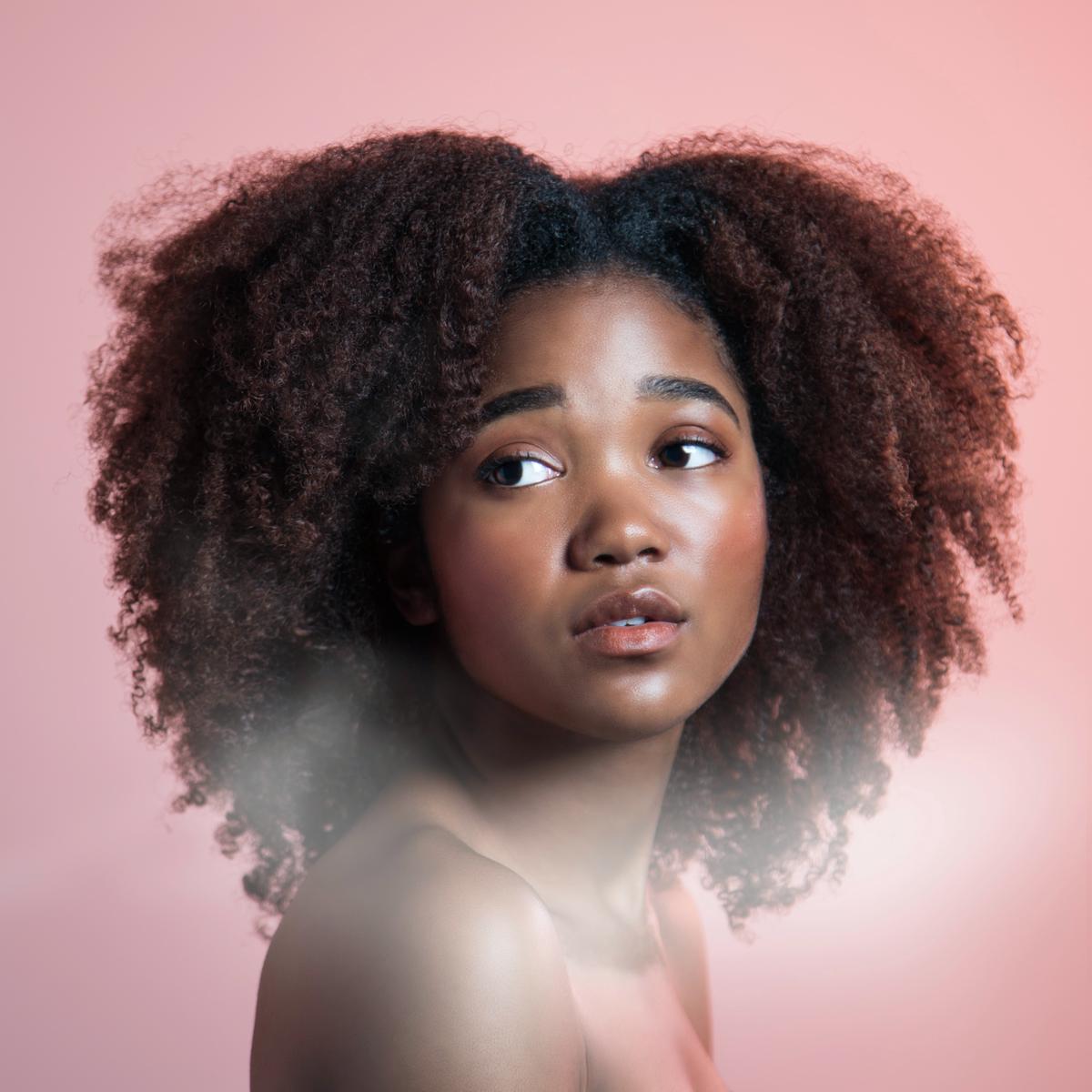
Photo by jekafe on Unsplash
Exploration of Different African Hairstyles
Recommended Styles for Natural African Hair
Natural African hair is incredibly versatile, allowing for a wide variety of styles. Braiding, including styles such as box braids, micro braids and cornrows, is a traditional and celebrated hair styling method. These braids function as a protective element for the hair while also promoting growth, as they typically last a few weeks without the need for change.
The Afro, another much-loved classic, emphasizes the natural texture and volume of African hair, varying from tight and compact versions to large, voluminous ones. These can be shaped and modified in numerous ways to suit personal preferences.
Additional suitable hairstyles for natural African hair include Twists and Bantu Knots. These striking styles are created by twisting or knotting sections of hair, offering not only an attractive look but also serving as low-maintenance protective styles.
The fade haircut has increasingly become the go-to choice among younger men in recent years. This stylish hairstyle typically features closely trimmed sides with longer hair on top. Despite requiring more upkeep, the fashionable aesthetic of this style has made it popular.
Styling Natural African Hair Safely
Proper care and protection are key when styling natural African hair due to its fragile nature. Always begin by making sure your hair is well-moisturized. This is important because African hair tends to be drier and more prone to breakage. Use sulfate-free shampoos and conditioners, and incorporate oils like coconut, argan, or jojoba into your hair care routine.
When detangling your hair, always start from the ends working your way up to the roots. This helps to minimize breakage and split ends. Use a wide-toothed comb or your fingers for the best results.
Avoid applying too much heat to your hair when styling. Overuse of heating tools can lead to dryness, breakage, and hair loss. If you must use heat, always apply a heat protectant beforehand.
Finally, remember to give your hair a break. Don’t leave protective styles in for too long, and avoid styles that pull too tightly at the roots. Your hair needs time to rest and rejuvenate between styles.
Maintaining and styling natural African hair can be a bit of a learning curve initially, but with the right care and products, it’s a journey well worth it. The key is to listen to your hair, observe how it responds to certain products and styles, and adjust accordingly.
Understanding the Significance of The Natural Hair Movement
The Natural Hair Movement promotes the acceptance and celebration of inherent African hair textures, countering the societal norms directing black individuals to straighten their hair. It has played a pivotal role in enhancing the acceptance and diversity of African hairstyles today. Propagating styles that not only appear stylish but also foster the hair’s health, such as puff ponytails, wash-and-gos, and twist-outs, the movement has sparked creativity and self-confidence. The promotion of a culture celebrating natural hair encourages further exploration of various hairstyles, all the while preserving the unique charm and energy of African hair.
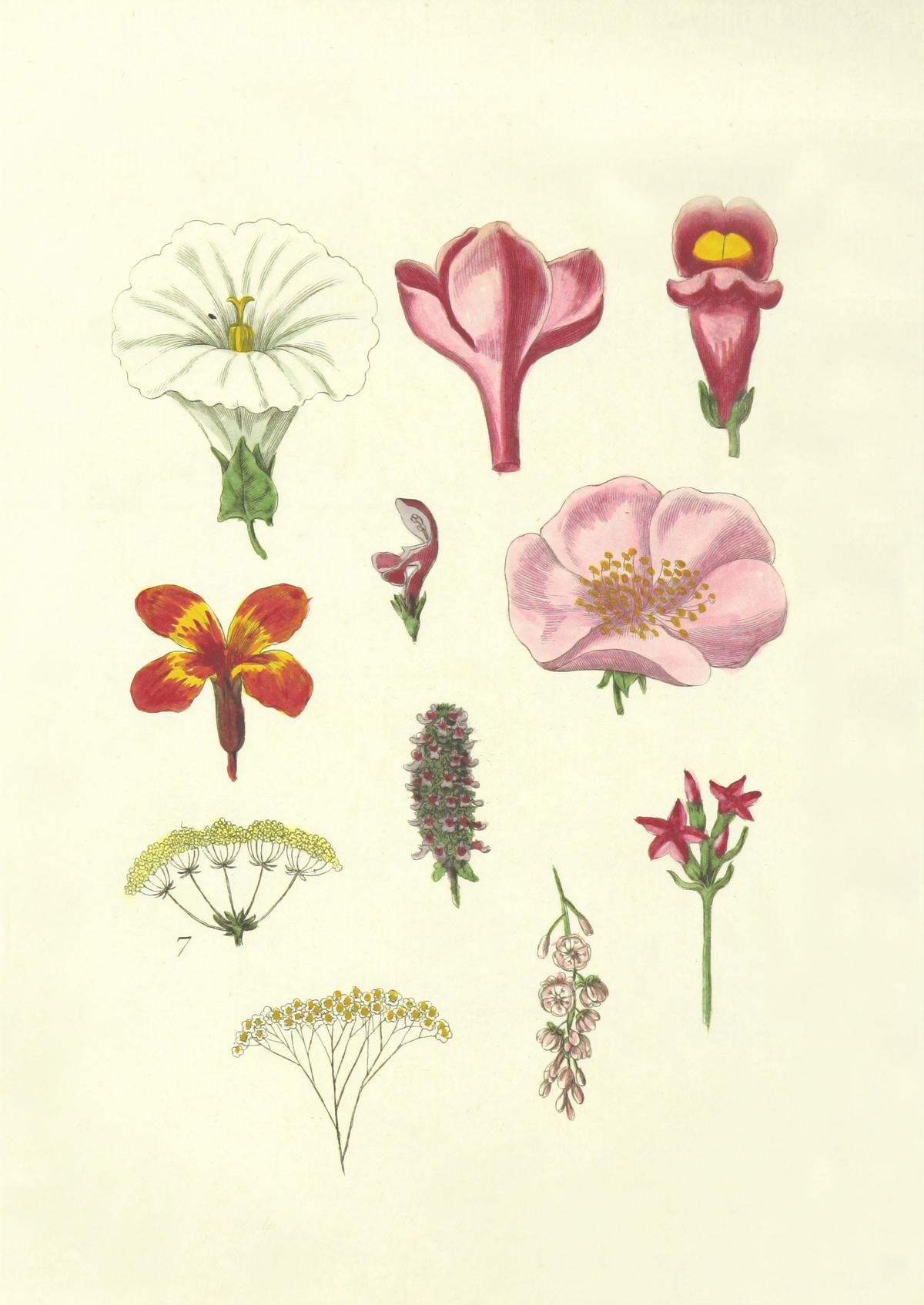
Photo by britishlibrary on Unsplash
Product Recommendations and DIY Natural Hair Solutions
Choosing Suitable Products for Natural African Hair
Choosing appropriate products for African hair necessitates paying due consideration to the type of hair. African hair is distinctive in its variety, ranging from types 3A to 4C. Each type differs in terms of texture, curl pattern, and dryness level. For instance, type 3A encompasses loose curls and can easily adapt to a wide spectrum of products. In contrast, type 4C hair boasts tight, coily patterns that demand targeted, moisture-rich care.
The selection of products for African hair should hinge on the product’s consistency and the hair’s requirement for moisture, nutrition, and resilience. Thicker, cream-based products typically suit coarser hair types better due to their capacity to lock in moisture.
Recommended Hair Products for Natural African Hair
Several hair product lines cater specifically to natural African hair and its unique needs. Shea Moisture, for instance, offers a range of products from shampoos to hair masques that are developed for different African hair types. Other brands like Cantu, Aunt Jackie’s, and As I Am have diverse product ranges catering to the specific needs of African hair.
DIY Solutions for Natural African Hair
Apart from commercially available hair products, natural African hair can also benefit from DIY solutions. Homemade deep conditioners made with natural ingredients such as honey, olive oil, and avocado can provide intense hydration to thirsty locks. Likewise, creating a DIY flaxseed gel can serve as a healthier alternative for hair styling.
Apple cider vinegar is another popular DIY solution for natural African hair. It helps cleanse the hair, promotes shine, and balances the scalp’s pH. Furthermore, proteins such as eggs and mayonnaise are often used in DIY treatments to add strength and reduce breakage in African hair.
Price Considerations
Just like with any other product, the price is an essential factor to consider when selecting hair products for natural African hair. More expensive does not always equate to better when it comes to hair care, and many affordable brands cater effectively to the needs of African hair.
Take time to read product reviews and compare prices across different retailers. It is also crucial to understand that what works for one person might not necessarily work for another, since our hair types and needs differ. Therefore, experimentation within a budget could be key in finding the most suitable products for your hair.
Finally, remember that with hair products, less is often more. Many natural hair products are highly concentrated and, as a result, only small amounts are required per use, which can make even expensive products cost-effective in the long run.
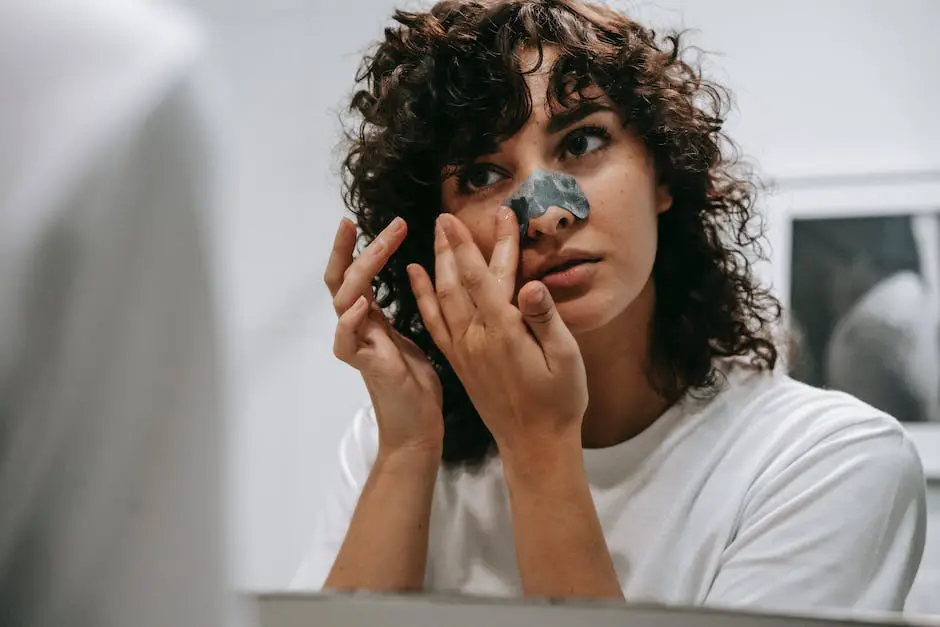
The journey through the world of natural African hair has been enlightening, illuminating the uniqueness of its structure and debunking misconceptions, while also acknowledging the challenges faced by individuals with this hair type. We’ve learned the intricacies of maintaining and caring for African hair, understanding the importance of consistently good practices, as well as the potential damage that can be caused by neglect or inappropriate hair care techniques. Exploration of different African hairstyles has shown us the beauty and versatility of this hair type, and the ultimate overview of product recommendations and DIY natural hair solutions provided guidance on the best ways to nourish and protect it. This journey leaves us with one essential truth – that understanding and nurturing natural African hair is an embracing of an individual’s unique beauty and the rich heritage from which it springs.
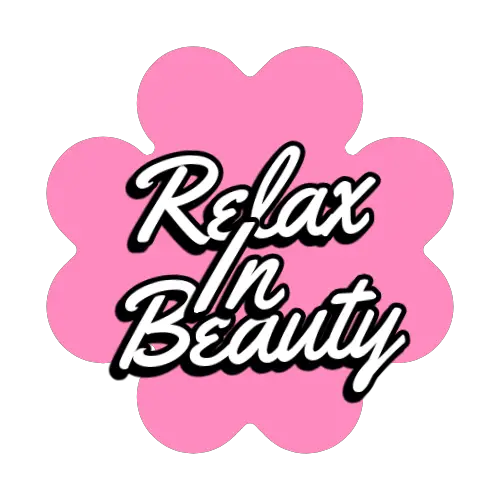
Leave a Reply